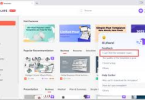Introduction:
In today’s fast-paced and competitive world, career guidance plays a crucial role in helping individuals make informed and confident career choices. Whether you’re a student exploring future options, a graduate stepping into the professional world, or someone looking to switch paths, the right career guidance can be a game-changer. It provides clarity, uncovers hidden potential, and aligns personal interests with market opportunities. This blog post will walk you through the essentials of career guidance, offering tips, strategies, and insights to support your journey toward a successful and fulfilling career.
What is Career Guidance?

Career Guidance is the process of helping individuals understand their strengths, interests, and abilities to make smart career decisions. It involves professional advice, assessments, and mentoring to support people at various stages of their career—whether they’re choosing a college major, entering the job market, or planning a career change. The goal of career guidance is to provide clarity, direction, and confidence to achieve long-term career goals effectively.
Why is Career Guidance Important?

Career guidance is essential for personal and professional development. Here are some key reasons why it matters:
- Clarifies Career Goals
Career guidance helps individuals set realistic and achievable goals based on their skills and interests. - Reduces Career Confusion
With so many career options available, guidance helps narrow down choices and prevents indecision. - Builds Confidence
Personalized advice and support boost confidence in making career-related decisions. - Saves Time and Resources
Right decisions at the right time prevent wastage of time, money, and effort on unsuitable paths. - Improves Job Satisfaction
When individuals pursue careers aligned with their passion and strengths, they experience higher satisfaction and productivity. - Supports Lifelong Learning
Career guidance promotes continuous learning and adaptability in a rapidly changing job market.apidly changing job market.
Step-by-Step Guide on Career Guidance
Here’s a practical, step-by-step approach to effective career guidance:
1. Self-Assessment in Career Guidance
Start by understanding yourself—your interests, strengths, weaknesses, values, and personality. Use tools like aptitude tests, personality assessments (like MBTI), or career quizzes.
2. Exploring Options through Career Guidance
Research different career fields, job roles, industries, and future trends. Learn about required qualifications, job responsibilities, work environments, and growth opportunities.
3. Setting Goals with Career Guidance
Set short-term and long-term career goals. Make sure they are SMART (Specific, Measurable, Achievable, Relevant, Time-bound) to stay focused and on track.
4. Seeking Professional Career Guidance
Consult a career counselor, mentor, or industry expert. They can offer real-world insights and help you avoid common mistakes.
5. Educational Planning in Career Guidance
Choose the right courses, certifications, or degrees that align with your career goals. Educational decisions are a core part of career planning.
6. Skill Development through Career Guidance
Identify and develop the skills required in your desired field—technical, communication, problem-solving, and leadership skills are often in demand.
7. Gaining Experience with Career Guidance
Look for internships, volunteer work, part-time jobs, or freelance projects. Real-world experience enhances your resume and provides career clarity.
8. Evaluating and Adapting Career Guidance
Regularly review your career path. Adapt to new opportunities or market trends and be open to change if needed.
Advantages and Disadvantages of Career Guidance
Advantages of Career Guidance
- Informed Decisions
Career guidance helps individuals make well-researched and suitable career choices based on their strengths and market demand. - Boosts Confidence
It provides clarity and assurance, helping individuals feel more confident about their chosen career path. - Saves Time and Effort
By offering direction early on, it minimizes wasted time and effort on unsuitable paths or indecisive career moves. - Identifies Strengths and Weaknesses
Through self-assessment and expert input, individuals become more aware of their capabilities and areas for improvement. - Adapts to Changing Trends
Career guidance keeps individuals informed about current and emerging career opportunities in a dynamic job market. - Encourages Long-Term Planning
It promotes goal setting and future-oriented thinking, leading to better career satisfaction and growth.
Disadvantages of Career Guidance
- Quality Depends on the Advisor
Inaccurate or generic advice from unqualified counselors can mislead individuals and harm their career paths. - Over-Reliance on Others
Too much dependence on guidance may limit personal decision-making and critical thinking. - Can Be Costly
Accessing professional career counseling or assessment tools can be expensive and unaffordable for some. - Not Always Personalized
Some guidance programs may offer one-size-fits-all advice that doesn’t suit every individual’s unique background or aspirations.
Common FAQs on Career Guidance
What is career guidance, and who needs it?
Career guidance is professional support to help individuals make informed decisions about their career. It’s useful for students, job seekers, career changers, and professionals aiming for growth.
When should I seek career guidance?
You can seek career guidance at any stage—after school, during college, before choosing a major, when looking for a job, or when planning a career switch.
How can career guidance help me?
It helps you understand your skills, explore career options, plan education, build confidence, and make smart career choices aligned with your goals.
Is career guidance only for students?
No, career guidance is for anyone—students, graduates, working professionals, or even those re-entering the workforce after a break.
Where can I get career guidance?
You can get career guidance from school or college counselors, career coaching centers, online platforms, government career services, or professional mentors.
Is career guidance expensive?
Some services are free (like school counselors or online tools), while professional career coaching might charge a fee. There are also budget-friendly online resources available.
Can career guidance guarantee success?
Career guidance doesn’t guarantee success, but it gives you the right direction, tools, and clarity to make smart career decisions and increase your chances of success.
Conclusion on Career Guidance
In a world full of career choices and constant changes, career guidance has become more important than ever. It acts as a roadmap that helps individuals discover their strengths, understand the job market, and make confident, well-informed decisions about their future. Whether you’re a student choosing your first path or a professional looking to grow or shift careers, proper career guidance can save time, reduce stress, and lead to a more fulfilling life. Remember, the right advice at the right time can make all the difference in building a successful career.
Bonus Point on Career Guidance
Career Guidance Encourages Lifelong Learning
One of the often-overlooked benefits of career guidance is how it fosters a mindset of continuous growth. As industries evolve and new technologies emerge, learning doesn’t stop after getting a job. Through proper guidance, individuals are more likely to stay updated with skills, adapt to changes, and pursue additional qualifications, making them more competitive and future-ready in their careers.







